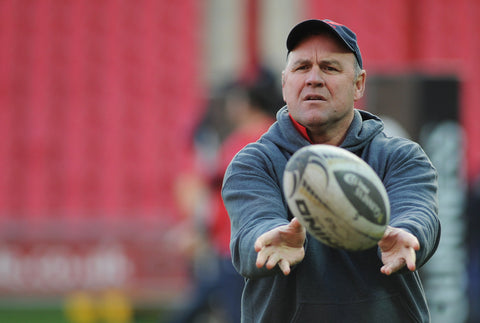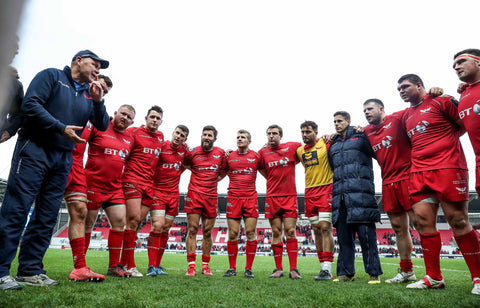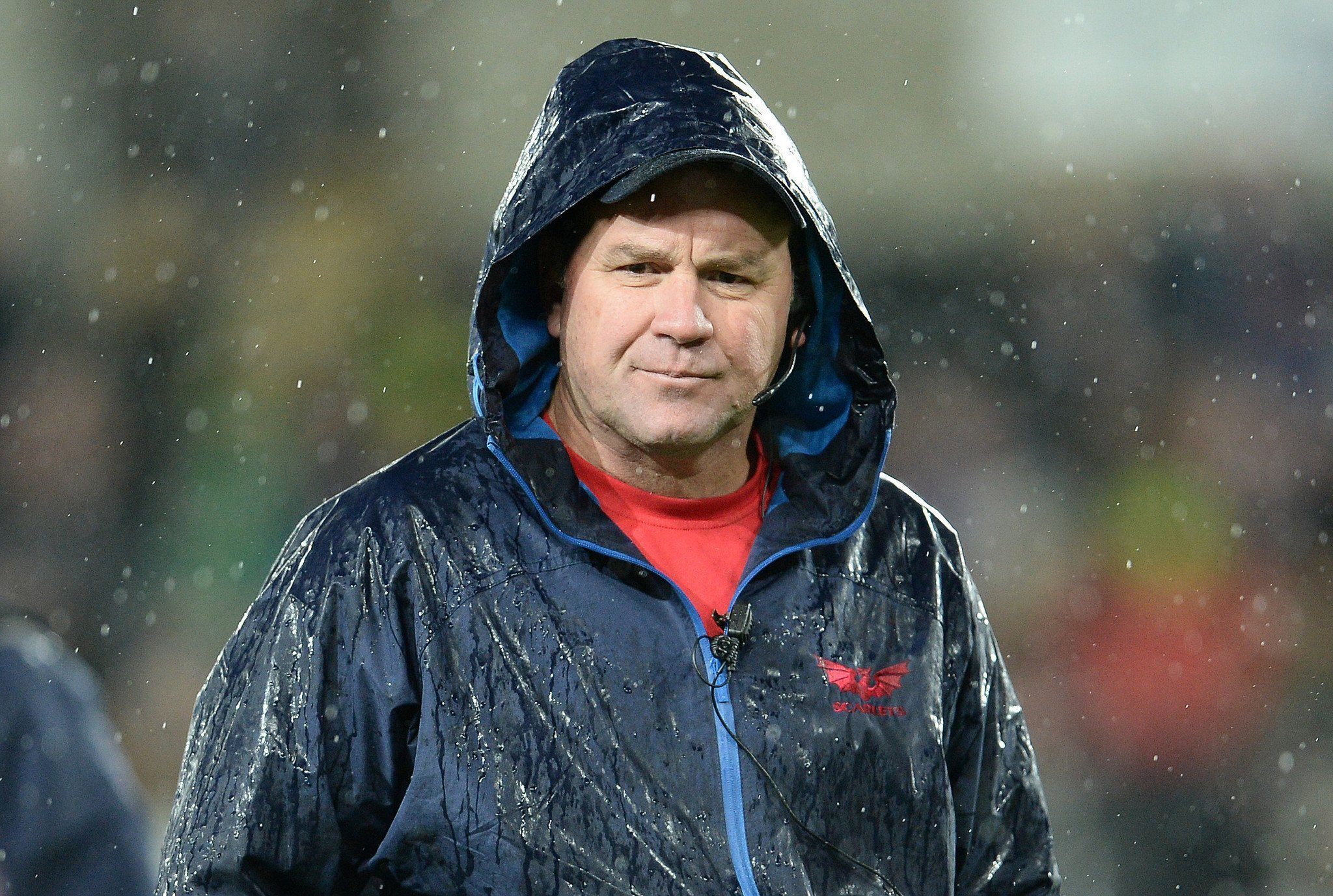With his Scarlets playing scintillating rugby and flying the flag for Welsh rugby in Europe, Wayne Pivac is currently the hottest property in the rugby coaching world right now. He's coached Super Rugby stars in New Zealand, the Fijian national side and is tipped to one day take over the Welsh national side. Wayne Pivac told The Locker Room about his coaching life...
I played a few times for my provincial side, and I was captain at Tukipuna when I had a serious knee that meant I had to stop playing. At that point, the coach had just retired and they didn’t have a replacement so I put my hand up.
In the first few years, I learnt a hell of a lot about coaching your mates. You have to treat everyone the same way, you can’t have rules for one, and rules others. I allowed that in the first season and it was a mistake, it made it a tough old start
In the police force there were some pretty unpleasant jobs to do that the average person doesn’t see – so telling a rugby player they’re on the bench isn't hard by comparison
When you’ve told someone their loved ones have passed away, telling a player they’re benched is nothing. I was a police offer when I started coaching, I’d deal with a lot of different people from different walks of life and that skill of communication is essential to coaching. There were some pretty unpleasant jobs to do that the average person doesn’t see – so telling a rugby player that their behaviour is unacceptable, that they’re on the bench or not part of the 23, that’s not hard by comparison. I think that’s where a lot of people fall down, and I think it’s also why a lot of people who’ve been in the police, or worked as teachers or in the community, have done well in coaching.
You learn from coaches you don’t like playing for as well as those you do. You draw experience from the good and bad. The former All Blacks selector Peter Thorburn was an innovator, he was ahead of his time. It's no coincidence that a lot of the players he coached ended up as coaches, guys like Mark Anscombe (Canada), Paul Feeney (Stormers), Wayne Shelford (ex-Saracens).
You’d go to workshops and just sit and listen and nobody would share anything other than generic info
I studied the styles of two coaches – John Hart and Laurie Mains. They had two contrasting styles, but it was interesting to see how they operated, [at Auckland] we had a few players in the All Blacks squad so I’d talk to them about how they worked.
A few years into professionalism the New Zealand system really opened up so that, all the way from the All Blacks down, information was shared. Before, you’d go to workshops and just sit and listen and nobody would share anything other than generic info. But later you’d get access to Graham Henry and Steve Hansen – which was fantastic for a young coach.

inpho.ie/Pro12 Rugby
I was 32 when I got the Northland job. It was young for a coach. It kicked off my career, I was still working part-time, and while the squad was semi-pro, I had some full-time Super Rugby players in Norm Berryman, Norm Maxwell and Glenn Taylor, but we had mostly guys off the farms or working other jobs. Then I got headhunted by Auckland, and the majority of the squad was Super Rugby. I had to balance their programmes with the guys who were working and had lenient bosses that allowed them to train and play.
I’ve been through a lot as a coach, and coaching different cultures is always a challenge. It was the same with the Auckland squad, I had to bring people together as one. The big thing I learnt was identifying what worked for different people, whether they were Samoan, Fijian, Maoris, Tongans, Europeans – that was the big challenge, and we ended up having quite a bit of success as a result of doing that.
Kava was a big thing culturally too, it’s not ever far from the Fijian psyche and even when you remove it when the boys are in camp, somebody supplies it to the players
The Fiji job was challenging and frustrating. I was director of rugby across sevens, 15s, referees – the whole nine yards. I loved the challenge.
We seemed to have an off-field incident every day. Again, it was about understanding the culture, but I really embraced it and that played a big part in being able to work there for three years. It helped me grow as a coach, and going from Auckland to Fiji, Europe seemed to be the next logical step.
It was difficult having some players earning 2,000 Fijian dollars a year (about £763) and the guy in the room next year on £150,000. It’s not until you go to Fiji, and see how people live and operate on a daily basis that you realise how complex that situation is. Kava was a big thing culturally too, it’s not ever far from the Fijian psyche and even when you remove it when the boys are in camp, somebody supplies it to the players and being relaxed is not the best preparation for Test matches.
Fiji is all about rugby and religion. You walk around the streets and you see everyone in Hurricanes' shirts, Waratah's shorts, all sorts of teams. Rugby clubs from all over the world send old playing kit over and they love it. But it's tough in Fiji, 5% of the money goes to 95% of the population.
People don't often see the real Fiji. It's hard to explain that to people who just come in and out of the country and stay in a Hilton. The real Fiji has its challenges, even basic things like scrum machines and new rugby balls just didn’t exist when I was there.
Winning the World Cup Sevens is a memory I'll take with me forever. The whole country celebrated for so long and the reception we got when we returned was incredible. It's the same for the latest coach with the Olympics, to achieve that on such a small budget in a small country on such a big stage is something else.

inpho.ie/Pro12 Rugby
In the southern hemisphere there’s this view of Super Rugby as the superior game. There’s this opinion that it has a lot more ball movement and running rugby, whereas the Six Nations is about crowds going ballistic when their side kicks a penalty and their side wins 9-6. But that was the old days and the rugby here has changed, which I was pleasantly surprised about when I arrived. All rugby across the globe is good now.
We pride ourselves on our development system at Scarlets. Look at all the great talent that has come this part of Wales. Gareth Jenkins has been involved for a very long time and, along with a lot of other people involved in identifying talent, he's trying to find the next Stephen Jones or Scott Quinnell.
Being paid to do sport is a privilege. It's not something that's going to last forever, so I try to cherish every moment. When your job is your passion you can't wrong.

